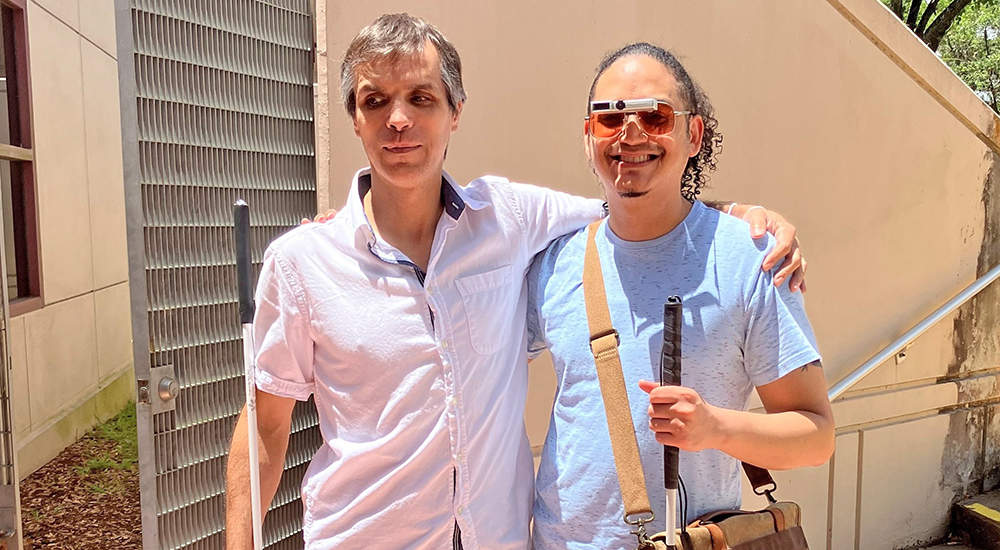While serving in the Air Force, doctors diagnosed Alexander Brown with multiple sclerosis and he was medically retired after just nine years of service. As a civilian, his condition gradually got worse and significantly affected his quality of life.
“Simple things like putting toothpaste on a toothbrush became a difficult task for me,” said Brown. “I soon lost my ability to drive and lost interest in activities that otherwise brought me joy.”
Brown self-medicated with alcohol to fight depression. “I felt like no one understood what I was going through due to the nature of multiple sclerosis being an invisible disease.”
During his first appointment with his primary care doctor at the Michael E. DeBakey VA Medical Center in Houston, Brown was referred to the Visual Impairment Services Outpatient Rehabilitation (VISOR) clinic, which is one of nine VA clinics nationally that provide comprehensive outpatient low vision services.
“Staff members with visual impairment issues gave me motivation and hope.”
Brown received a low vision optometry exam and then participated in visual skills/low vision therapy, mobility and navigation skills, living skills instruction, and training in assistive technology.
“I was impressed with how detail oriented they were with my assessments and how it affected me,” he said. “I was also fascinated that some staff members had visual impairment issues or blindness themselves. That gave me motivation and hope.”
Assistive Technology Specialist Stephen Pandov worked with Brown to help improve his mobility and navigation skills.
Brown also received a computer and iPad with the assistive technology, and several pair of glasses. The clinic connected him with community resources, like the Blind Veterans Association.
“Highly encourage Veterans with visual issues to visit VISOR.”
“My journey with the VISOR clinic was nothing short of spectacular,” Brown said. “Before I knew it, I was cooking again, leaving the house more and enjoying my hobbies once again.” Brown was able to see his child graduate and also earn an associate degree in mental health counseling from San Jacinto Community College.
“I owe all of this to the excellence and quality care of this team. I would highly encourage all Veterans with visual impairment issues and blindness to visit VISOR to discover this life changing experience.”
Brown hopes to become an alcohol and drug counselor.
“It is an honor to serve all of our Veterans, but it is special to be part of Alexander Brown’s recovery journey. He’s going to pay that forward and help other Veterans in his career,” said Amy Wheeler, VISOR director. “He took the tools and skills learned in VISOR and put them to use to achieve his goals. Vision loss doesn’t have to define a person and he is living proof.”
Topics in this story
More Stories
Watch the Under Secretary for Health and a panel of experts discuss VA Health Connect tele-emergency care.
The 2024 National Veteran Suicide Prevention Annual Report provides the foundation for VA’s suicide prevention programs and initiatives.
Theranostics is a specialized field of nuclear medicine that uses a two-pronged approach to diagnose and treat cancer.






